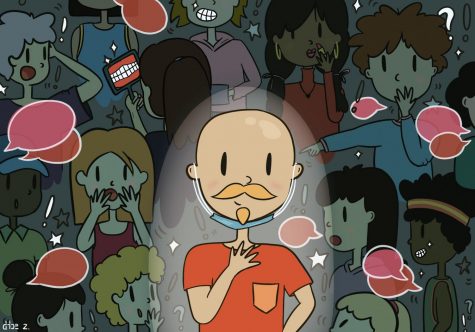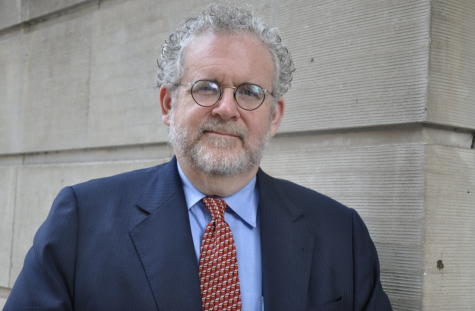A Safe Groton is an Open Groton

Credit to Chloe Zheng ’23
Groton should be totally open this fall: no distancing, no masks, no nothing.
In addition to the slew of reasons relating to students’ mental health and the need for normalcy, scientific research suggests that having some exposure to Covid-19 after being vaccinated is safer than not.
The purpose of a vaccine is to pre-expose your immune system to the virus so that it can attack the actual virus more efficiently and effectively. Having a vaccine does not mean you have a bubble of protection that deflects the virus as soon as it comes within three feet of you. With a vaccine, you can (and likely will) still encounter the virus, you’re just prepared enough that you’ll be able to fight it off without getting severely sick.
In order to keep our resistance strong, allowing some vaccinated exposure to Covid-19 is in fact the safest thing. “An exposure that can be detectable on a PCR…is not necessarily a bad thing but can be seen as a free, robust booster,” said Dr. Michael Mina, as
sistant professor of immunology and infectious diseases at the Harvard School of Public Health to New York Magazine. Your immune system sees the virus, reacts accordingly, and since it has already been prepared by the vaccine, will be able to kill off the virus before you can get severely sick. This exposure, therefore, may keep the immune system strong and ready to react.
In addition, a paper with authors from the National Institute of Allergy and Infectious Diseases says that, “boosting of vaccine-induced antibodies can occur following upper airway infection in animals that have minimal viral replication in the lower airway,” meaning that even if you are only exposed to the virus in the upper airway, without it reaching your lungs and making you severely sick, you can still boost your immunity.
Not only does this exposure boost your overall immunity, but it also serves to protect you from new strains, according to Mina. Being exposed to new variants through natural exposure or a vaccine is the only way to gain immunity to them. This does not mean you should go out and intentionally try to catch Covid-19. Rather, people should live their lives normally (as long as they’re protected) and let their bodies develop immunity naturally.
The presence of the Delta variant does not change the development of antibodies from little bits of exposure. In an article from August 26th in the New York Times, Dr. Akiko Iwasaki from Yale Medical School discusses this idea in the context of the Delta variant, saying she expects “similar [increases in antibodies] would happen when you have a breakthrough infection.” Moreover, the risk associated with these mild exposures remains unchanged with the Delta variant. “The risks to vaccinated people haven’t really changed,” Jennifer Nuzzo, the head epidemiologist for the Johns Hopkins Covid-19 Testing Insights Initiative told the New York Times on September 9th.
Last year, Groton’s goal was to have zero cases. Last year, there was a lot that we still didn’t know about Covid-19. Last year, we didn’t have vaccines. This year, things are very different.
Given what we now know about the vaccines, there will inevitably be some positive PCR tests this fall, but that’s okay. As long as we are protected from severe disease by vaccines, we shouldn’t continue employing such restrictive protocols because getting a little exposure will help protect us and keep us healthy in the long run.
Although this exposure sounds scary, it will actually help to keep us safe. The Covid-19 virus is certainly not going away, and Groton being completely open will help keep the immunity of the community as finely tuned as possible, and ready to fight off whatever comes their way.










